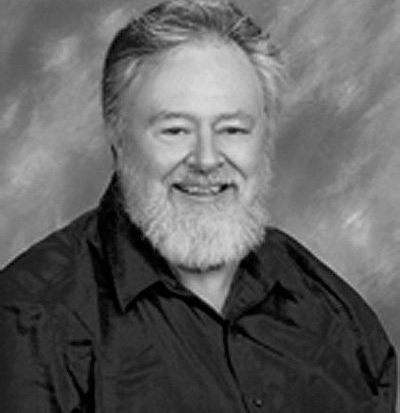

By David E. Roy
A major Earth-saving Event, slowly being assembled at Pomona College in Claremont, will be launched on June 3, 2015. The overall purpose and many of the topics are exceptionally progressive.
Conference: Seizing an Alternative
Titled “Seizing an Alternative: Toward an Ecological Society,” the conference aims to set in motion both short- and long-term solutions for the unfolding crises that threaten the very existence of our species, as well as many other existing life forms (www.whitehead2015.com).
The catalyst for these necessary changes is nothing less than a profound idea. If you have an idea that ideas do not really matter or are easily overshadowed by action, well, you have no idea what’s in store.
New Ideas Needed
Our collective way of understanding reality results in serious distortions that end up creating the conditions for unfeeling damage to the world of nature, as well as insensitive damage to other humans.
To get beyond this, we have to not only understand but also feel our intimate connection with the world around us.
Track: How Has Civilization Affected the Human Psyche?
I am organizing one of the nearly 80 tracks. This track is focused on understanding how civilization has affected the human psyche.
The research indicates that many of the worst problems facing humanity have arisen from the radical change that Homo sapiens (i.e., modern humans) made around 12,000–15,000 years ago.
For hundreds of thousands of years, we were organized in small groups of 20 or 30 to 50, sometimes in relationship with two or three other such groups, and we existed by foraging food on a daily basis: This was our hunter-gatherer way of life.
Many, Many Millennia as HG…Now a Few as Farmers
Then, in a fairly short period of time, we shifted our food source to grain and other crops we could grow, and to relatively tame livestock that we raised and maintained for meat and dairy.
Although the impact of the overall lifestyle changes is the main focus of this track, it is worth taking a moment to lift up the recent criticisms by the Paleo Diet movement of our relatively “new” diet (for only 12,000–15,000 years compared to hundreds of thousands of years).
The Pluses and Minuses of the Paleo Diet
The Paleo Diet movement has been raising important questions about our body’s natural ability or lack of it to derive nutrition from grains and dairy, as well as the array of manufactured vegetable oils. Having spent some time researching several of the authors at the forefront of the movement, I find in the most general sense that this is an important concern that may well underlie the rise in levels of obesity, autoimmune diseases, allergies, lack of energy and so on.
However, it is not as exacting a diet as some indicate; and the greed factor has struck some, though not all by any means. But it has its place. Of course, the other area of concern has to do with the fact that most of our obesity and assorted related ailments has coincided with the explosion of processed foods in the last 50–75 years.
Notre Dame’s Dr. Darcia Narvaez: Radical New Insights
On the emotional and psychological side, a picture is emerging that suggests that over the past 12 to 15 millennia, we have in essence abandoned ourselves at our foundation, at the base of who we are.
A leader in developing this new information along with a new perspective on what is (and is not) normal, healthy, essential human nature, is Notre Dame Professor Darcia Narvaez. She calls the field Evolutionary Developmental Psychology. She also will be a key resource at the conference for this track.
What a lot of the research in this new field has brought to light is that children born into a typical hunter-gatherer group are seen as children of the group, not just the birth mother or father. The term alloparenting is used by anthropologists to refer to non-biologically related parents. In these tight-knit groups, if an infant or older baby is in distress for whatever reason, the child is touched by someone within seconds. The result is far fewer incidents of crying and far less time spent crying.
These groups tend to huddle at night so there is a lot of physical contact with each other. Often, the youngest are carried around. Average age to weaning is four.
Bigger Brains = Earlier Birth
Dr. Narvaez explains the extensive child care as the result of our hominid ancestors becoming bipedal (upright) that the hips had to narrow. Then, to accommodate a large increase in brain size, human infants are born with only 25% of the brain developed. In general, we are roughly three years “premature” compared to other mammals whose offspring typically can start getting around fairly soon after birth. This difference has led those in what is being called the Evolutionary Developmental Psychology movement to say that the group functions as an “external womb” for the first three years.
Without spelling out all the contrasts, I think you can see how radically different these groups were with children, especially for the first three years or so. When the findings from leading neuroscientists (and neuropsychology/neuropsychiatry) are included, the possible cost of this change picture becomes even clearer. The primary loss has to have been a solid sense of connection, a trust that one will be cared for and loved. Furthermore, in other cases, the person who is there is not able to be calm and “self-regulated,” and therefore cannot help the child become soothed, calmed and to achieve self-regulation.
All of this happens in the first three years of life, a period that has been almost impossible to access in therapy with any consistency. Part of this is due to how the brain develops; the earliest memories kick in when the left hemisphere starts to be dominant, around age 3.
Allan Schore: The Source of Disorders
Allan Schore, Ph.D., at UCLA has authored some of the most complete books about what can go wrong and how that happens regarding emotional development in the first three years of life (and beyond). He has said that the origin of some of the most difficult emotional-psychological disorders begin in the first three years.
My strong hunch is that what the right brain is tuned into are the emotions in the people around them. When something traumatic happens, or a child feels threatened with being abandoned, the emotions become attached to the context at that time, even if the child later has no clear, visual memory.
In what was the natural setting for thousands and thousands of years, the child had a safe, attentive environment in which to feel treasured, safe, loved, important; especially if the adults were able to achieve a level of attunement with the child such that the child could experience the parent’s self-regulation and through that, gain this ability for the child as well.
But without that, and with much that goes sometimes harshly in the opposite direction, then we end up with an inability to know and understand directly our own deep wounds (that occurred prior to any verbal ability), and we have a difficult time to be in any real attunement with others, and with the natural world.
*****
Ordained in the United Church of Christ, David Roy is a pastoral counselor and a California licensed marriage and family therapist who directs the Center for Creative Transformation. He has a Ph.D. in theology and personality from the Claremont (California) School of Theology. Send comments to him at admin@cctnet.com or 5475 N. Fresno St., Suite 109, Fresno, CA 93711.
